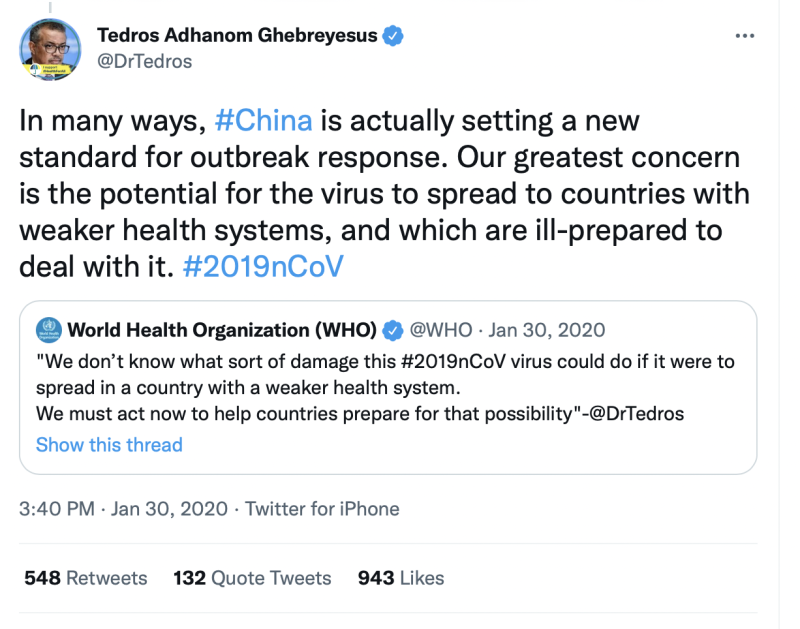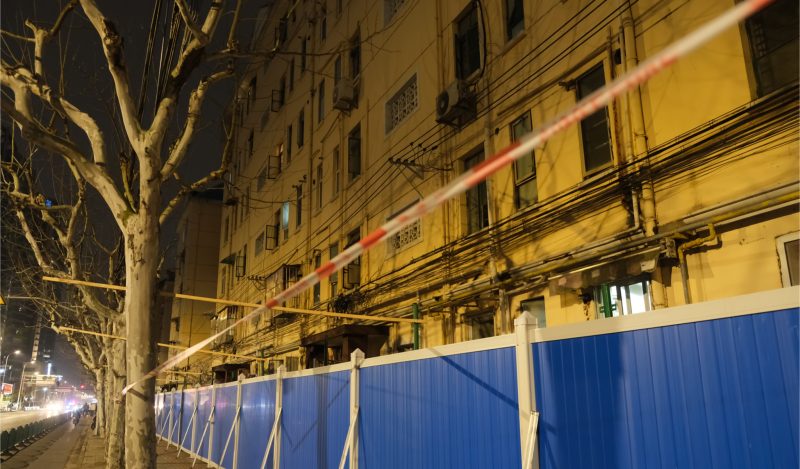At the end of the Cold War, the end-of-history theory was that every country in the world that desired prosperity and progress would necessarily have to embrace both economic liberty and political democracy. You cannot have one without the other, the theory went. It was inevitable.
The world waited for China to go the direction of Eastern Europe and so many other countries.
It did not happen. Despite liberalizing economic reforms, the CCP maintained hard-core political control for the decades following. Yet its economy grew and grew. This gave rise to a new theory: perhaps the most successful countries will foster economic liberalism while securing tight political control, thus dispensing with the inefficiencies of democracy.
China seemed to have it all going.
Now we have evidence of what’s wrong with a one-party state with a powerful chief executive. It works until it doesn’t. What stopped working in China could not have been expected years ago. The party believed it had solved the problem of pathogens via massive violations of human liberty.
Today, the people of Shanghai are suffering weeks of lockdowns, food shortage, and extreme quarantine of healthy people, all in the interest of eradicating a virus that the rest of the world has finally realized must become endemic. Even Fauci is admitting this now (following two years of urging more restrictions).
But in China? Children are being taken from parents, the pets of people with a positive test are being shot, people are screaming from skyscrapers, and food is rotting in warehouses even as people report to be starving. There are videos online of stores being ransacked. There is talk of revolution in the air.
Never forget: China was the birthplace of lockdowns. The head of the World Health Organization praised the early 2020 lockdowns in Wuhan. In one letter dated January 2020, the WHO congratulated China and urged the country to “enhance public health measures for containment of the current outbreak.” Director Tedros Adhanom Ghebreyesus further underscored the point with a tweet.

Neil Ferguson from the Imperial College did too. “It’s a communist one party state, we said. We couldn’t get away with it in Europe, we thought… and then Italy did it. And we realised we could.” And so China became a model for the world: Wuhan, Northern Italy, the US, the UK, and then all but a handful of the countries in the world followed the lockdown paradigm.
To this day, Xi Jinping surely basks in the warmth of this glowing praise. It put China’s policy prowess on display for the world. As I write, Yahoo reports concerning Shanghai:
China’s President Xi Jinping praised the country’s “tested” zero-Covid strategy on Friday, even as Shanghai authorities prepared nearly 130,000 beds for Covid-19 patients amid surging cases and mounting public anger.
We can only intuit what is happening here. For Xi Jinping, lockdowns were his greatest triumph. They seemed to work two years ago. He earned plaudits the world over, and the world followed his model. Perhaps this filled him and the CPC with a sense of incredible pride and confidence. They had done it correctly and the rest of the world copied the idea, without having practiced the article of lockdown as perfectly as China.
Eventually governments can convince themselves of their own propaganda. That appears to be what happened here. That illusion prevented Xi and the party from observing what should have been obvious to anyone with a modicum of knowledge about viruses such as this one: in a functioning society and market, it will spread no matter what. As Vinay Prasad has constantly reminds us, everyone will get Covid. And through that path, we finally move beyond the pandemic.
What has happened now in China is as predictable as the failure of “Zero Covid” in Australia and New Zealand.
This means that cases are nowhere near stopping in China. They will spread to every city, every town, every countryside until vast numbers of 1.4 billion are exposed. This could mean rolling lockdowns for years to come, along with all the damage and political instability that they necessarily entail. This will surely have a profound impact on economic growth and possibly the credibility of the CCP itself.
The communist party has made a profound error. Most places in the world did. The US was not Shanghai-level terrible but this is a matter of degree because the theory was tried out here too. In political democracies, politicians and bureaucrats have mostly tried to soft land their gross errors while manufacturing excuses for reopening without apology. Many want everyone just to forget this whole disaster.
Will that happen in China? The trouble is the incredible centrality of lockdowns to China’s perceived achievements over the last two years. So long as there are powerful people in Beijing who genuinely believe that lockdown is the path forward – and no opposition party in place to take a different point of view – this will likely continue, raising fascinating questions about the political and economic future of this country.
The magic combination of political and economic freedom turned out not to be the end of history. But China-style dictatorship is not the end either, simply because it contains no operational mechanism for the correcting of egregious errors. What saved the US from lockdown terror was political pluralism and federalism; China has institutionalized neither. Thus does intellectual error lead to egregiously immoral outcomes.
Lockdowns are nowhere a solution to pathogenic spread, contrary to the assurances of the WHO or celebrity scientists in the UK or the US. When governments of the world tried to prove their competence by declaring war on cell biology, they finally met their match. No matter how powerful a state, there are forces of nature that will always outsmart it.
Join the conversation:

Published under a Creative Commons Attribution 4.0 International License
For reprints, please set the canonical link back to the original Brownstone Institute Article and Author.









